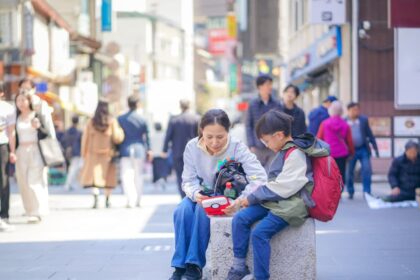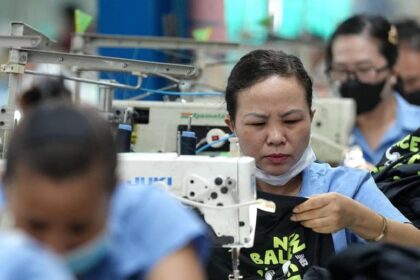Leisure Takes Center Stage: How Japanese Society Is Redefining Work-Life Priorities in 2024
In 2024, Japan is witnessing a profound shift in societal values as more people prioritize leisure over work. This trend, highlighted by the latest annual survey from the Japan Productivity Center, reflects not only changing attitudes but also broader economic, demographic, and cultural transformations. As the country grapples with an aging population, evolving workforce dynamics, and the lingering effects of the pandemic, leisure is emerging as a central pillar of Japanese life.
- Leisure Takes Center Stage: How Japanese Society Is Redefining Work-Life Priorities in 2024
- What Do Japanese People Do for Leisure?
- Why Is Leisure Gaining Importance Over Work?
- How Do Economic Trends Influence Leisure Choices?
- What Does the Shift Mean for Work Culture?
- Health and Well-Being: The Benefits of Leisure
- Leisure for All: Inclusion and Accessibility
- Demographic and Social Context: The Bigger Picture
- How Are Businesses and Industries Responding?
- International Comparisons: Is Japan Unique?
- In Summary
What Do Japanese People Do for Leisure?
The 2024 survey, which polled 3,467 people aged 15 to 79 across Japan, offers a revealing snapshot of how leisure time is spent. For the third consecutive year, domestic sightseeing trips—including summer and winter escapes and visits to onsen (hot springs)—topped the list, with 48.3% of respondents participating. This preference underscores the enduring appeal of Japan’s natural beauty and cultural heritage, as well as a desire for relaxation and escape from daily routines.
Other popular leisure activities include:
- Watching videos (streaming or rental): 38.1%, rising to second place from the previous year
- Dining out (excluding daily meals): 35.6%
- Reading for pleasure: 33.8%
- Listening to music (streaming, CDs, records): 33.3%
- Movies and driving also featured in the top ten
While overseas travel participation remains low at 6.0%, it has increased slightly from the previous year, reflecting a gradual recovery from pandemic-era restrictions.
Leisure Spending and Frequency
Those who traveled domestically did so an average of 4.5 times per year, spending about ¥129,200 annually. Dining out was even more frequent, with an average of 18.6 outings per year and annual spending of ¥65,300. These figures suggest that, while Japanese people are eager to enjoy their free time, they are also mindful of their budgets—a trend reinforced by rising prices and economic uncertainty.
Why Is Leisure Gaining Importance Over Work?
The most striking finding from the 2024 survey is that 67.8% of respondents now say they find more meaning in leisure than in work or try to finish work quickly to maximize their free time. This is the highest rate since comparable statistics began in 2009 and marks a significant cultural shift in a country long known for its strong work ethic and demanding corporate culture.
Several factors are driving this change:
- Economic Pressures: Inflation and rising costs have made people more cautious about spending, but also more determined to enjoy the time and money they do have.
- Demographic Shifts: Japan’s aging population and declining birthrate are changing the structure of the workforce, with more seniors and women participating, often in part-time roles that allow for greater flexibility.
- Pandemic Legacy: COVID-19 forced many to reconsider their work-life balance, with remote work and flexible schedules becoming more common.
- Changing Values: Younger generations, in particular, are placing greater emphasis on personal fulfillment, mental health, and experiences outside of work.
As one official from the Japan Productivity Center explained,
“People are increasingly seeking meaning and satisfaction outside of their jobs, and this is reflected in how they choose to spend their time and money.”
How Do Economic Trends Influence Leisure Choices?
While the desire for leisure is growing, economic realities are shaping how people pursue it. According to The Japan Times, participation in domestic travel, though still the most popular leisure activity, has not yet returned to pre-pandemic levels. In 2019, 54.3% of respondents reported taking domestic trips, compared to 48.3% in 2024. Rising prices are a key factor, leading many to opt for less expensive leisure activities like video streaming or local outings.
Despite these constraints, overall leisure time and spending have both increased slightly year-on-year, according to the survey’s “leisure index.” This suggests that, even in the face of economic headwinds, Japanese people are finding ways to prioritize enjoyment and relaxation.
Travel Trends and the Future
Looking ahead, the JTB 2025 Travel Trend Outlook forecasts a continued rise in domestic travel, with 305 million domestic trips projected for 2025. However, spending per trip is expected to increase due to inflation, and travelers are likely to seek greater value for money. Younger generations, especially women under 30, are the most active travelers, reflecting broader shifts in social norms and gender roles.
What Does the Shift Mean for Work Culture?
Japan’s work culture has long been characterized by long hours, group loyalty, and a strong sense of duty. However, the latest data suggest that these norms are evolving. While the labor force reached a record high of 67.8 million in 2024—thanks largely to increased participation by seniors and women—the total number of hours worked has not risen significantly. Many of these new workers are in part-time or flexible roles, allowing for a better balance between work and leisure.
This trend is not unique to Japan. Across Asia and globally, work-life balance is becoming a top priority for employees. A recent Randstad survey found that work-life balance now outranks salary and benefits as the most important factor for workers in Singapore, with similar patterns observed in other countries. Flexible work arrangements, opportunities for personal development, and a positive workplace atmosphere are increasingly seen as essential for attracting and retaining talent.
Blended Travel and the Rise of “Bleisure”
Another emerging trend is the blending of work and leisure, sometimes called “bleisure.” Research from Crowne Plaza by IHG shows that more people are combining business trips with personal travel, seeking experiences that offer both professional and personal growth. This trend is supported by the rise of remote work and digital nomadism, which allow employees to work from anywhere and integrate leisure into their routines.
Health and Well-Being: The Benefits of Leisure
The shift toward leisure is not just about enjoyment—it also has important implications for health and well-being. A large-scale study published in BMC Nephrology found that higher levels of leisure-time physical activity are associated with better kidney function among Japanese adults. In contrast, high levels of physical activity during work or household chores did not offer the same benefits and could even be detrimental.
This finding highlights the unique value of leisure activities for physical and mental health. Whether it’s walking, sports, or simply relaxing, making time for leisure can help reduce stress, improve mood, and support long-term well-being.
Leisure for All: Inclusion and Accessibility
As leisure becomes more central to Japanese life, there is growing recognition of the need to make it accessible to everyone, including people with disabilities. A recent study in Frontiers in Education explored the importance of leisure activity guidance in special needs education. Teachers and vocational practitioners identified expanding leisure options, developing social environments, and building skills for leisure participation as key priorities. Addressing these needs is essential for ensuring that all members of society can enjoy the benefits of leisure.
Demographic and Social Context: The Bigger Picture
Japan’s demographic challenges—an aging population, declining birthrate, and shrinking workforce—are reshaping both work and leisure. The government is responding with policies to encourage greater workforce participation among seniors, women, and immigrants. However, many of these new workers prefer part-time or flexible roles, which allow for more leisure time but do not fully resolve labor shortages.
Immigration is also playing a growing role in addressing workforce gaps. As noted by the Harvard International Review, Japan is gradually opening its doors to more foreign workers, though integration challenges remain. Supporting immigrants with language training, job mobility, and anti-discrimination measures is seen as essential for both economic growth and social cohesion.
How Are Businesses and Industries Responding?
The leisure industry is adapting to these changes by offering new products and experiences tailored to evolving consumer preferences. According to KPMG, companies in the leisure, retail, and hospitality sectors are leveraging digital transformation, data analytics, and customer-centric strategies to meet the needs of a more discerning and value-conscious public. The rise of blended travel, wellness tourism, and experiential offerings reflects a broader shift toward personalization and flexibility.
Major events like Expo 2025 in Osaka, the Setouchi Triennale, and the opening of new theme parks are expected to boost domestic travel and leisure spending. At the same time, concerns about the impact of tourism on local communities and resources are prompting calls for more sustainable and inclusive approaches.
International Comparisons: Is Japan Unique?
While Japan’s shift toward leisure is notable, it is part of a wider global trend. Across Asia, Europe, and North America, work-life balance is becoming a key differentiator for employers and a top priority for employees. The rise of remote work, digital technologies, and changing social norms are enabling people to seek greater fulfillment outside of traditional work structures.
However, Japan’s unique demographic and cultural context—characterized by an aging society, strong group orientation, and historical emphasis on work—makes its transition particularly significant. The country’s experience offers valuable lessons for other nations facing similar challenges.
In Summary
- Japanese society is experiencing a historic shift, with leisure now prioritized over work by a record 67.8% of people in 2024.
- Domestic travel, video streaming, dining out, and reading are among the most popular leisure activities, though economic pressures are shaping spending habits.
- Demographic changes, including an aging population and increased participation by women and seniors, are driving more flexible work arrangements and greater emphasis on personal fulfillment.
- Health research shows that leisure-time activities offer unique benefits for well-being, beyond what is gained from work-related physical activity.
- Businesses and policymakers are responding with new products, services, and policies to support evolving leisure preferences and workforce needs.
- Japan’s experience reflects broader global trends, but its unique context offers important insights into the future of work and leisure.












